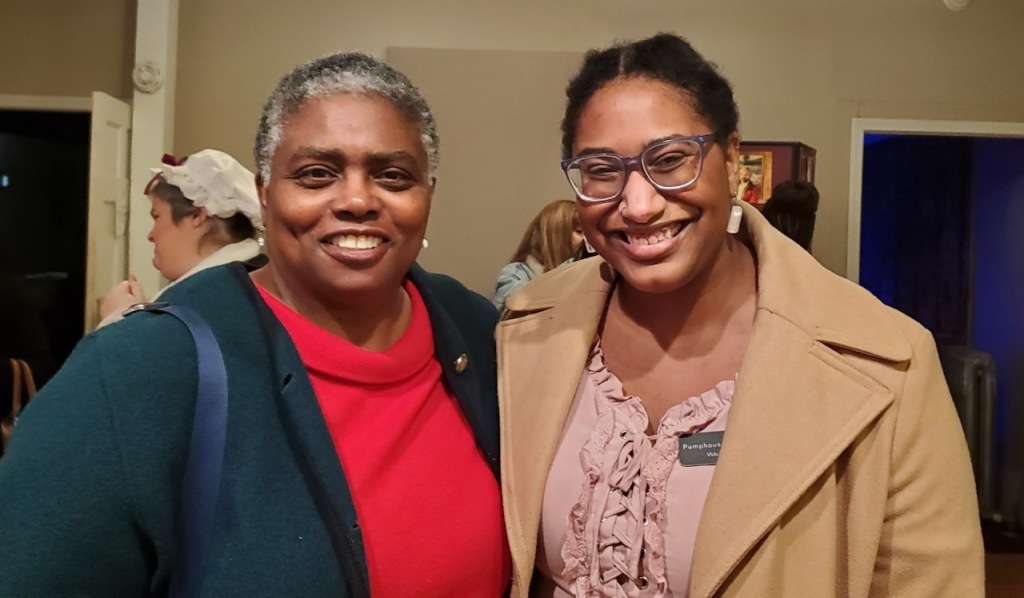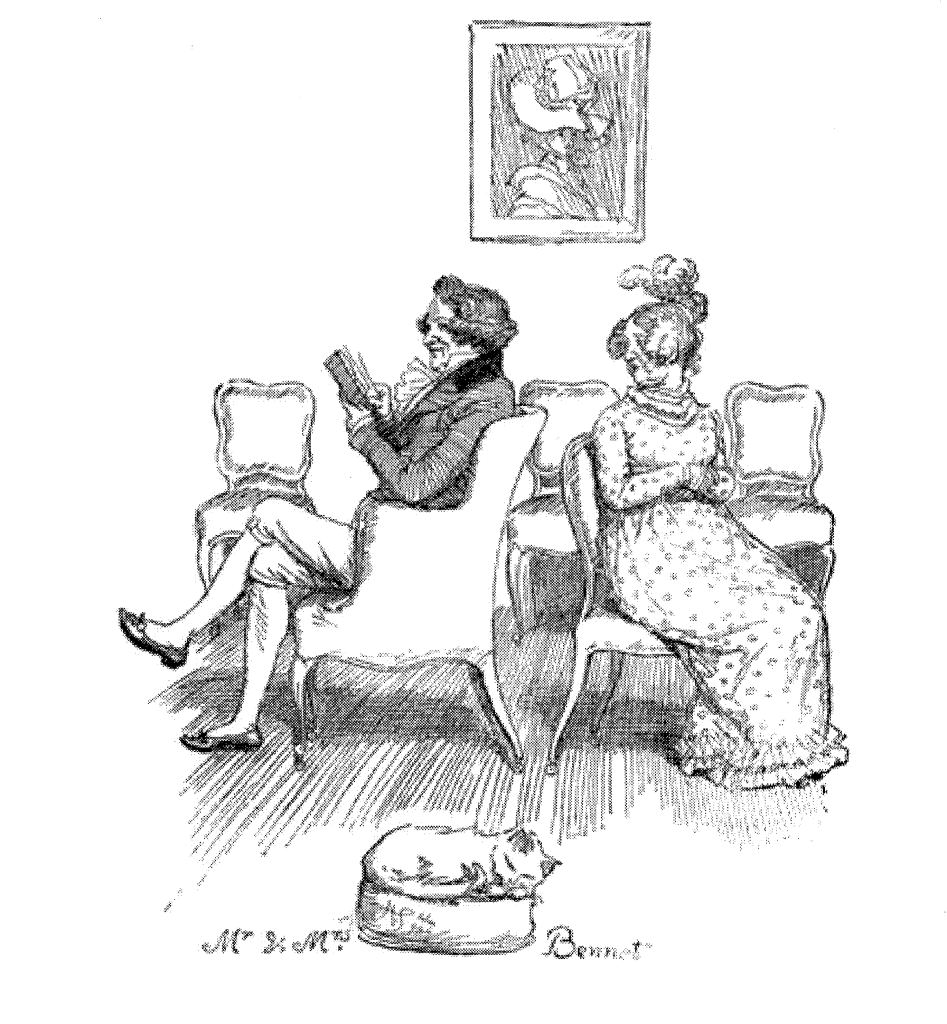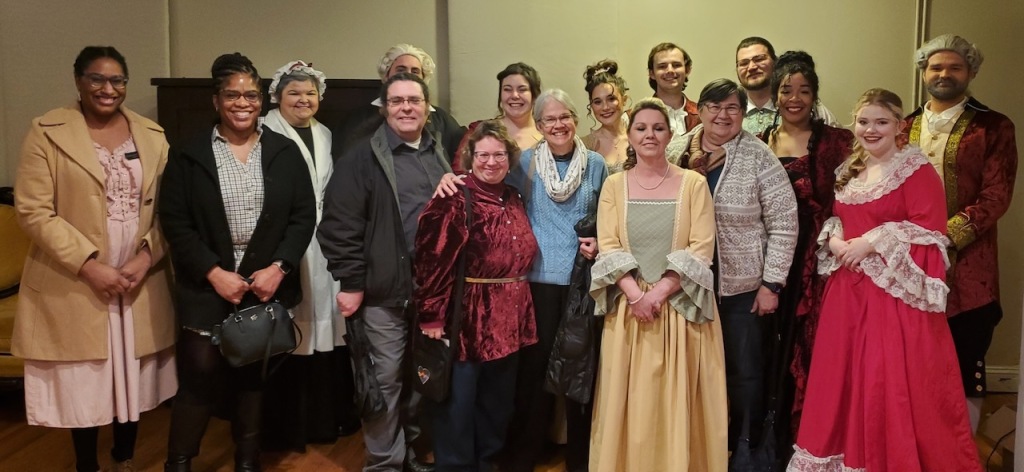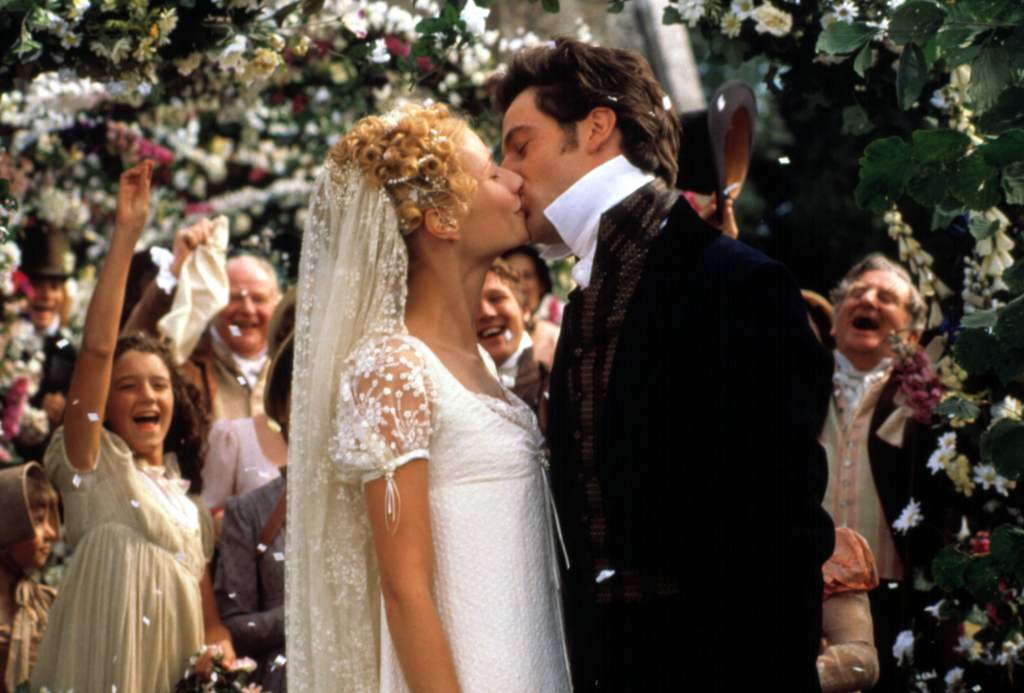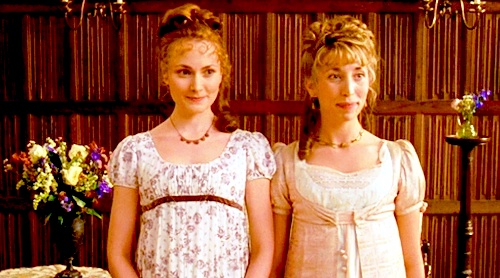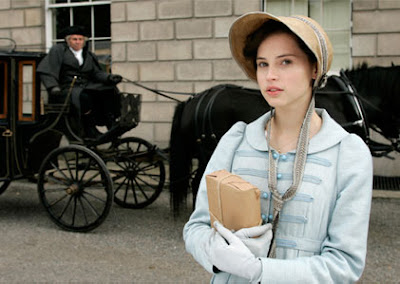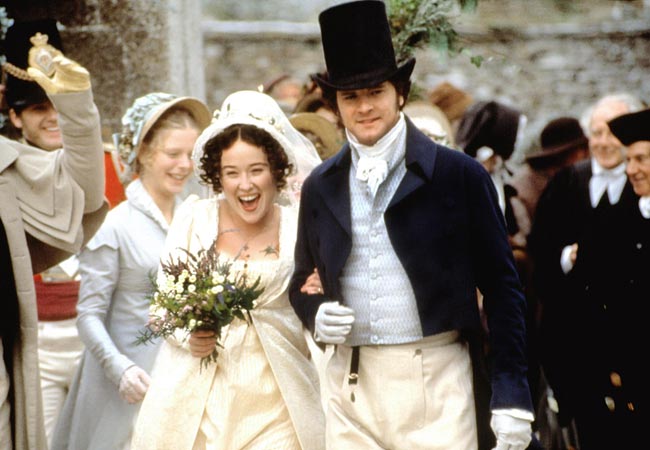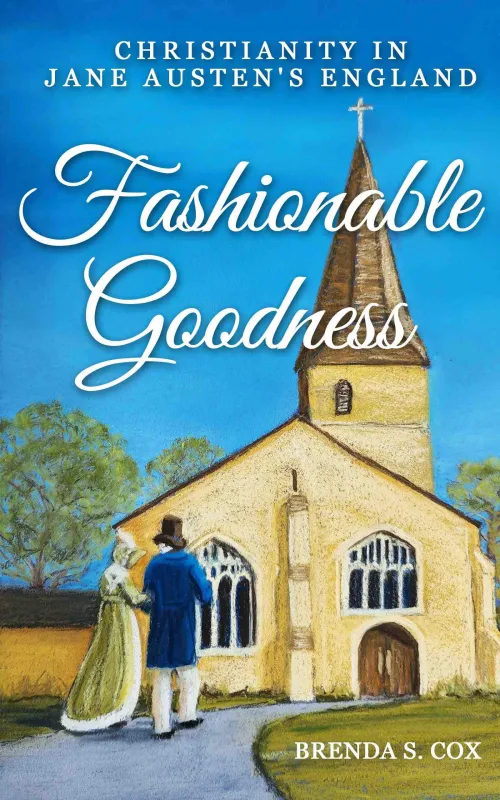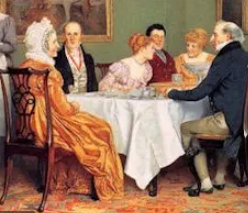Inquiring readers: Victoria Grossack, FCAS, the author of this piece and an actuary, sent this highly interesting article about Jane Austen and mathematics, a first topic for this blog. Enjoy!
Janeites esteem Jane Austen as a literary genius. Her characters are exquisitely drawn and her dialogue can be wickedly funny. She also uses the stream of consciousness technique before it became popular. All devotees know her novels are classics.
What about Austen as a mathematician, however? She never promotes herself in this regard. Like most female authors in her day, she doesn’t promote herself at all, not even putting her name on her novels – but in her writing, her mathematical abilities are evident. In fact, she uses math in a way that would make most actuaries proud. (Note: Actuaries are specialized mathematicians who generally work for insurance companies, which is relevant to some of the math Austen uses.)
Monetary Sums, Large and Small
Jane Austen and almost all of her characters are aware of the value of money, which would be true of most mathematicians (and certainly all actuaries). In fact, money is often a motivator for her characters’ choices in her novels. The young ladies often need to marry so they will have husbands to support them, while the single gentlemen are more attracted to single young ladies when they have significant dowries. Mr. Darcy’s income of £10,000 per annum makes him more handsome in Pride & Prejudice, while Mr. Wickham only courts Mary King after she inherits £10,000. Mr. Collins’s financial situation even wins him the hand of Charlotte Lucas:
Without thinking highly either of men or matrimony, marriage had always been her object; it was the only provision for well-educated young women of small fortune, and however uncertain of giving happiness, must be their pleasantest preservative from want. (Pride & Prejudice, Chapter 22)”

Image of a half guinea in the time of George III
However, Austen’s comprehension goes well beyond large, round sums and the necessity of an income. Mansfield Park has a lovely passage in which monetary gifts to William Price are discussed by his two aunts, Mrs. Norris and Lady Bertram.
Mrs. Norris seemed as much delighted with the saving it would be to Sir Thomas as with any part of it. “Now William would be able to keep himself, which would make a vast difference to his uncle, for it was unknown how much he had cost his uncle; and, indeed, it would make some difference in her presents too. She was very glad that she had given William what she did at parting, very glad, indeed, that it had been in her power, without material inconvenience, just at that time to give him something rather considerable….”
“Mrs. Norris seemed as much delighted with the saving it would be to Sir Thomas as with any part of it. “Now William would be able to keep himself, which would make a vast difference to his uncle, for it was unknown how much he had cost his uncle; and, indeed, it would make some difference in her presents too. She was very glad that she had given William what she did at parting, very glad, indeed, that it had been in her power, without material inconvenience, just at that time to give him something rather considerable….”
“I am glad you gave him something considerable,” said Lady Bertram, with most unsuspicious calmness, “for I gave him only £10.”
“Indeed!” cried Mrs. Norris, reddening. “Upon my word, he must have gone off with his 3 pockets well lined, and at no expense for his journey to London either!” (Mansfield Park, Chapter 31)”
The amount of Mrs. Norris’s gift to William Price is never mentioned in Mansfield Park, but Jane Austen told her family (A Memoir of Jane Austen) that Mrs. Norris gave her nephew only one pound. Besides being a perfect contrast of the miserly Mrs. Norris versus her much more generous sister, the dialogue shows how well Austen understood the importance of relatively small sums, and how much £10 would mean to a midshipman in William Price’s position.
The Distress of Debt
Another reason for seeking a marriage settlement is to deal with debt. Several of the gentlemen (Willoughby in Sense & Sensibility, and Wickham in Pride & Prejudice) marry to escape debt, making life choices that they would have preferred not to make.
However, marriage is not the only solution to debt. Austen’s last novel, Persuasion, begins with the fact that the baronet, Sir Walter Elliot, has been living beyond his means and needs to “retrench” in order to regain solvency. As he is one of those people who is really bad at managing money, Austen comes up with the best method that will save him money:
“Quit Kellynch Hall.” The hint was immediately taken up by Mr. Shepherd, whose interest was involved in the reality of Sir Walter’s retrenching, and who was perfectly persuaded that nothing would be done without a change of abode. (Persuasion, Chapter 2)
This change of abode is critical to the plot of Persuasion. It’s also sound business advice.
Some readers may object that the examples given so far only prove that Austen had a mercenary side and do not demonstrate her understanding of mathematics. So let’s move on to other passages involving annuities and livings. These also concern money, but the math is more challenging.
Annuities and Livings
Annuities are insurance contracts that provide a fixed income stream, often for a person’s remaining lifetime. An annuity is a series of payments; these days annuities are often used as a way to pay out retirement, or are awarded in lieu of some lottery sum.

Life expectancy over time
Now, annuities, when used by life insurance companies and pension funds, are fairly sure things because they can rely on expected values, i.e., mortality tables. In other words, life insurance companies and pension funds know approximately when their annuitants will die, on average. These organizations can manage because they work with large pools of people. Each annuitant can land anywhere on a distribution, but on average, given enough customers, an insurance company can have confidence in its ability to pay annuities.
However, if you are just one individual promising an annuity to just one other individual, you cannot rely on averages, because you can land anywhere on a distribution. It’s like throwing a pair of dice: on average, they will sum to 7, but you can roll anything from 2 to 12, and the probability of rolling something besides the mean is pretty good.
So, that’s the underlying math. In Sense & Sensibility, Austen describes the dilemma a couple is facing when debating whether or not to promise an annuity to Mr. John Dashwood’s widowed stepmother. This sort of annuity would have to be guaranteed by them; they would not be in the position of a life insurance company that can have confidence in averages. Here are some of the remarks made by Fanny Dashwood to her husband, Mr. John Dashwood:
“… if you observe, people always live forever when there is an annuity to be paid them; and she is very stout and healthy, and hardly forty. An annuity is a very serious business; it comes over and over every year, and there is no getting rid of it. You are not aware of what you are doing. I have known a great deal of the trouble of annuities; for my mother was clogged with the payment of three to old superannuated servants by my father’s will, and it is amazing how disagreeable she found it. Twice every year these annuities were to be paid; and then there was the trouble of getting it to them; and then one of them was said to have died, and afterwards it turned out to be no such thing. My mother was quite sick of it. … It has given me such an abhorrence of annuities, that I am sure I would not pin myself down to the payment of one for all the world.” (Sense & Sensibility, Chapter 2)
Fanny Dashwood’s speech demonstrates her meanness, but Jane Austen has also demonstrated her sophisticated understanding of the uncertainty associated with an annuity.
Let’s move on to livings. A living is the salary of a clergyman, a fixed number of pounds, associated with fulfilling the duties of a particular parish, sometimes paid in kind instead of cash. Austen, daughter and sister of several clergymen, understood the importance of livings.
Livings are critical to the characters in Pride & Prejudice and in Mansfield Park. In Sense & Sensibility, Austen gives real insight into the livings market, when a living for a small parish is being given by Colonel Brandon to Mr. Edward Ferrars. The discussion below takes place between Mr. John Dashwood and John’s half-sister, Elinor.
Really!—Well, this is very astonishing!—no relationship!—no connection between them!—and now that livings fetch such a price!—what was the value of this?”
“About two hundred a year.”
“Very well—and for the next presentation to a living of that value—supposing the late incumbent to have been old and sickly, and likely to vacate it soon—he might have got I dare say—fourteen hundred pounds. And how came he not to have settled that matter before this person’s death? Now, indeed it would be too late to sell it, but a man of Colonel Brandon’s sense! I wonder he should be so improvident in a point of such common, such natural, concern!” (Sense & Sensibility, Volume III, Chapter 41)
This shows Austen’s deep understanding of the mathematics of the livings market – as well as her talent to explain the situation clearly and to use that situation for effectively displaying the personalities of her characters.
Insistence on Accuracy
Austen’s mathematical talent is visible in matters, such as her understanding of chance in cards and her calculation of distances in journeys. She does not always go into these areas in depth, but they serve as reliable backgrounds for some of her scenes.

Halsted Pocket Watch
Furthermore, Austen is aware – as are most mathematicians – that a significant proportion of the population is not especially good in mathematics, and that their calculations and estimations should not be relied upon. The following dialogue takes place in Mansfield Park, between the characters Mary Crawford and Edmund Bertram:
I am really not tired, which I almost wonder at; for we must have walked at least a mile in this wood. Do not you think we have?”
“Not half a mile,” was his sturdy answer; for he was not yet so much in love as to measure distance, or reckon time, with feminine lawlessness. … “We have been exactly a quarter of an hour here,” said Edmund, taking out his watch. “Do you think we are walking four miles an hour?” (Mansfield Park, Chapter 9)
As the passage above was written more than two hundred years ago, we’ll skip over the lack of political correctness. Instead, let’s focus on the fact that nearly every mathematician (or actuary) has to insist on using reasonable data and accurate calculations. Moreover, most mathematically inclined persons will review calculations, even their own, because mistakes are so easy to make.
Testing Assumptions for Reasonability
Just as important as data and accurate reckoning are the underlying assumptions. Mathematicians, when creating scenarios and simulations, always need to determine whether their assumptions are reasonable. Something similar comes up in Northanger Abbey, when Henry Tilney tells Catherine Morland she has allowed her imagination to run away with her.
“Dear Miss Morland, consider the dreadful nature of the suspicions you have entertained. What have you been judging from? … Consult your own understanding, your own sense of the probable, your own observation of what is passing around you. … Could they be perpetrated without being known, in a country like this, where social and literary intercourse is on such a footing, where every man is surrounded by a neighbourhood of voluntary spies, and where roads and newspapers lay everything open?” (Northanger Abbey, Chapter 24)
Austen insisted on making stories out of the probable rather than what was wild and fanciful. She always keeps her assumptions grounded in reality.
Proxy variables
My favorite example of Austen’s display of mathematical ability is when she uses a proxy variable. Here’s Wikipedia’s definition of a proxy variable: “In statistics, a proxy or proxy variable is a variable that is not in itself directly relevant, but that serves in place of an unobservable or immeasurable variable. In order for a variable to be a good proxy, it must have a close correlation, not necessarily linear, with the variable of interest.”
In Emma, the following dialogue takes place between Mrs. Elton, the local vicar’s new bride, who recently arrived from Maple Grove, and Jane Fairfax, who happens to be the best educated of all of Austen’s heroines:

Former National School, 1833, Gloucestershire.
“I do believe,” she continued, “this is the most troublesome parish that ever was. We never heard of such things at Maple Grove.”
“Your parish there was small,” said Jane.
“Upon my word, my dear, I do not know, for I never heard the subject talked of.”
“But it is proved by the smallness of the school, which I have heard you speak of, as under the patronage of your sister and Mrs. Bragge; the only school, and not more than five-and-twenty children.” (Emma, Volume III, Chapter 16)
The number of children in the school serves as a proxy variable for the size of the parish. It is a perfect example of a proxy variable.
Family Connections
As we have seen, Jane Austen repeatedly shows her understanding of mathematics. The case, in my opinion, is proved, but there is additional circumstantial evidence. Mathematical talent often runs in families. Two of Jane’s brothers became admirals in the Royal Navy; in fact, the brother closest to her in age, Sir Francis Austen, rose to become Admiral of the Fleet. They could not have achieved these positions without strong abilities in mathematics. (Note: my own brother is an actuary.)

Sir Francis Austen
Jane Austen never used the term actuary, even though actuaries existed when she lived. Of course, she was writing about romance in country villages and not about insurance companies. In her six finished novels, she only uses the word mathematician on one occasion. This paragraph takes place in Emma, when Emma has witnessed an event – Mr. Frank Churchill’s rescue of Harriet Smith from a threatening mob – which she hopes will lead to romance:
Could a linguist, could a grammarian, could even a mathematician have seen what she did, have witnessed their appearance together, and heard their history of it, without feeling that circumstances had been at work to make them peculiarly interesting to each other?—How much more must an imaginist, like herself, be on fire with speculation and foresight!—especially with such a groundwork of anticipation as her mind had already made. (Emma, Volume III, Chapter 3)
Austen’s use of the word mathematician in this passage indicates she probably had some familiarity with people who could calculate.
Jane Austen writes both intelligently and intelligibly on many topics associated with mathematics. I do not think I am being an imaginist when I maintain that this literary genius of the early nineteenth century had a profound understanding of mathematics.
About the Author:

Author, Victoria Grossack
Victoria Grossack is a Fellow of the Casualty Actuarial Society and has worked for companies such as Folksamerica Reinsurance and Zurich Financial Services; she currently supplies materials for the Actuarial Bookstore. She also writes novels celebrating birds, Greek mythology, and Jane Austen. Her Jane Austen-based novels include: The Meryton Murders, The Highbury Murders, The Mansfield Park Murders and Mrs. Bennet’s Advice to Young Ladies. Her novels can be found at Amazon.
Citations:
Lodge, David, “The best stream of consciousness novels,” The Guardian, January 20, 2009.
Austen-Leigh, James Edward, A Memoir of Jane Austen, Richard Bentley and Son, 1871.
Roser, Max, “Life Expectancy,” Our World in Data.
Victoria’s Article in Actuarial Review entitled “Jane Austen, Actuary?” September 21, 2021: Click here to read it
Read Full Post »


